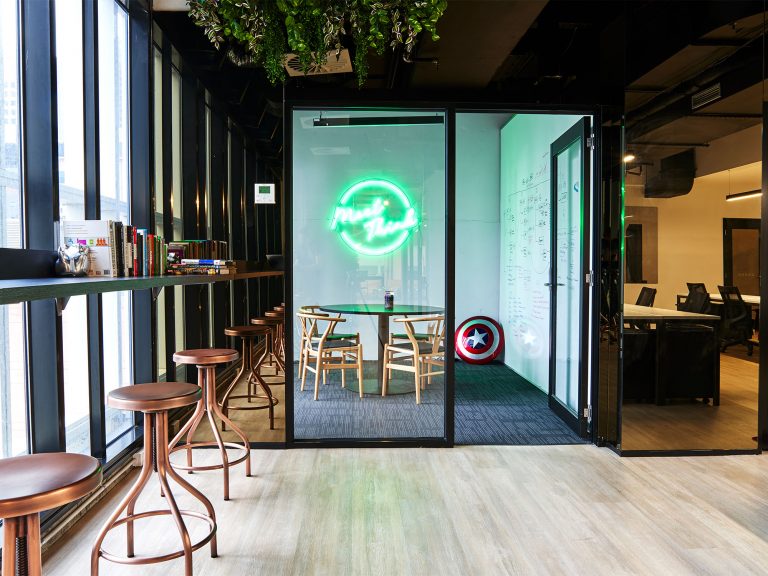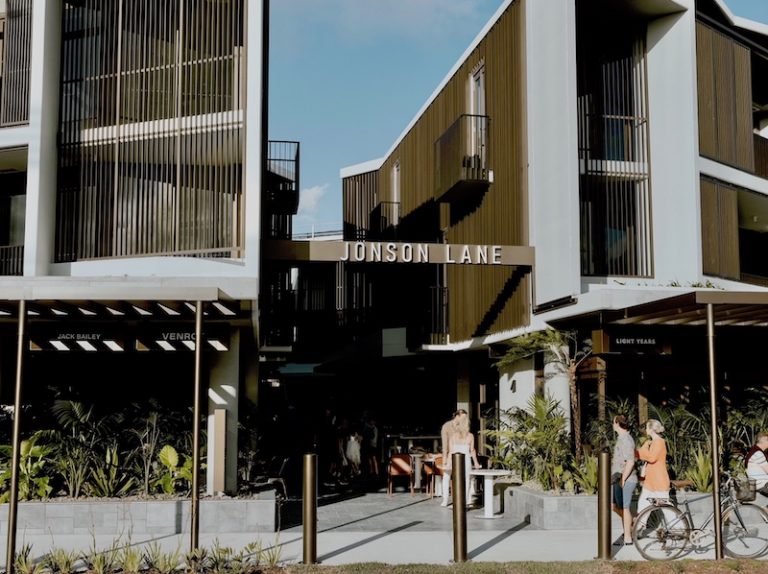How to buy an office building

Offices decidedly prove their worth when it comes to risk-averse returns, long leases and quality tenants.
This is despite COVID confusion, which has seen remote working increase.
But industry experts are encouraging buyers to keep the faith in offices, with these properties bucking initial, anticipated trends with record, high vacancy rates on the Gold Coast alone.
The risks of retail asset and strong buyer demand for industrial properties has also seen the office market achieve surprisingly sound yields.
What are the benefits to buying an office?
Compared to industrial and retail properties, offices offer plenty of benefits, particularly for inexperienced commercial buyers.
For these, and more experienced buyers, office purchases can mean a secure long-term investment with the potential to always attract attention.
Vacancy rates
The Property Council of Australia revealed Gold Coast offices experienced an 11.3% vacancy rate in the six months to July 2021.
“These are the highest rates we’ve seen since 2009,” Ray White Commercial Gold Coast agent, Luke Boulden, said.
“So, this has completely bucked the trend of what everyone anticipated (at the start of COVID), going in completely the opposite direction to where everybody anticipated it would go.”
Strong returns

Industrial popularity has affected office yields. Picture: Getty
Industrial properties are currently enjoying strong demand although in comparison, buyers are very cautious about purchasing retail properties, Mr Boulden said.
These changes are in turn affecting office yields.
“With increasing demand from buyers driving industrial up, and with the risks associated with retail assets, we’re seeing an increase of popularity in the office market,” he said.
“While we’ve seen yields contract recently on higher-end stock, yields are still ranging from 6-8%, which is a pretty sound return.”
Low risk
Again, retail and industrial changes are affecting office properties – in the best sense.
Mr Boulden explained that COVID lockdowns had resulted in a very volatile retail asset market, which had in turn created a group of highly risk-averse buyers who were avoiding buying into this sector.
“And with office tenants, both strata and freehold, you’re generally going to see a more well-polished operator than what you may see in industrial.”
Checklist: How to buy an office
Successful offices will always need to feature excellent locations, close to amenities and public transport, as well as quality fit-outs and tenants.
1. Choose a great location

There’s nothing like a great location to help an office succeed. Picture: Getty
“Whether it’s an office or whether it’s your house, it’s always location that’s important,” Will Carman of Savills Brisbane concurs.
The commercial sales manager added that nearby amenities including cafes and transport are also crucial to an office property’s success.
“One of the big things about offices is staff retention, and staff being satisfied with where they are,” he said.
“Is it easy is for someone to get a car park?
“How easy is it for someone to catch a bus or train?
“Is there a coffee shop nearby or in walking distance that makes it easy for staff to …. know they’re not in the middle of nowhere?”
Mr Carman added that social aspects around office time were also important for staff and the building itself.
“A lot of offices create a community where a bunch of people can walk out to bars on a Friday night,” he said.
“This comes back to buying in a place that people want to work from.”
RELATED: What type of commercial property should I buy?
2. Find a fantastic fit-out
Office investors considering an untenanted property should check to see if it’s already fitted out as this will save them both money and time, according to Mr Carman.
While it’s standard for tenants to organise and pay for their commercial fit-outs, or require an incentive to do so, some buildings already have a fit-out ready-made for their new occupant.
“An office like this will greatly reduce a substantial capital outlay because your tenants are not going to pay for all the fit-out if there’s none there,” Mr Carman said.
“With commercial leasing, there are typically incentives for fit-outs and if there are not fit-outs already in the property, the tenant will ask for a contribution towards it such as a rent-free period or cash contribution.
“That’s just the way it is with commercial office leasing.”
Mr Carman said an existing fit-out could also increase tenants’ initial interest in the office.
“If they can walk into something and utilise that fit-out, then that makes your property more attractive than other people’s place,” he said.
“So basically, if you can find a fit-out that’s well done, then that’s going to make a big difference.”
3. Try for existing quality tenants

Do your homework on current tenants. Picture: Getty
“Look at the quality of the tenant… and how long those tenants have been there as well,” Mr Boulden said.
“If there’s a tenant who’s been there 15 years, and they’ve got five-year options, you can almost say confidently that they should be fine.
“Whereas with someone who’s on a three-year term and they’re only 12 months into their first term, you really don’t know which way they’re going to go.”
Mr Carman concurred, advising office buyers to do their homework on current tenants.
“Learn who they are, what they are and if you’re able to, try and meet them before you buy the office,” he said
4. Do your due diligence
Before buying an office building, ensure you have a strong due diligence network for advice and assistance.
This includes a lawyer and accountant.
“Having the ability to do due diligence and get searches completed around rates, water and body corporate is definitely one of the things I’ve requested of buyers,” Mr Carman said.
“You definitely need a good team of consultants behind you and a good lawyer.”
“I think people will overlook having a good solicitor on their side too.”
Mr Carman advised buyers to have a good understanding of strata offices’ community management scheme (CMS).
“Have an understanding of how the body corp is structured and request the last six or 12 months of body corporate minutes,” he said.
Mr Boulden also recommended having a good relationship with an office leasing agent, who will understand your office and all it entails.
“Your office leasing agent can give you some advice on what your existing leases look like, whether they’re under-rented or over-rented, what options are coming up shortly, and the likelihood of your office tenants sitting there for awhile,” he said.
5. Consider COVID concerns
Mr Carman believes offices present a transitional space, with these commercial assets set to experience a very different 10 years compared to the past decade.
“How it all plays out, I’m not entirely sure but people are always going to need an office,” he said.
“Properties in good locations with good amenities, transport, food and beverages nearby are always going to be sought after, and people are always going to want to be in those spots.
“So I wouldn’t think that buying an office is a bad or poor investment.
“You just have to be a little bit more careful around where you’re doing this investment, what you’re doing and who your tenant is too.”

The great locations enjoyed by the indispensable office sector ensure these properties will prosper. Picture: Getty
Browse office buildings in your state
NSW now boasts the majority of Australia’s $60 million-plus office opportunities, according to CBRE’s Capital Markets office sector report, with the state currently having seven such properties on the market, with five available in the ACT, four in Queensland, three in Western Australia and two in Victoria.
There are also plenty of office opportunities to investigate on realcommercial.com.au







